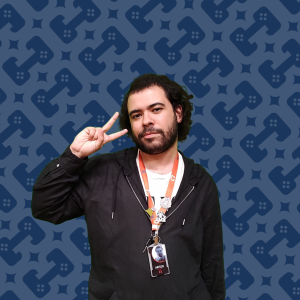When talking about the Gaming Industry and who works in it, it is common to have a direct association with Creativity, Inventiveness, Innovation and Expression. Working with games, especially those who are starting or looking from the outside, is synonymous with getting out of the notebook of ideas all those incredible moments and fantastic proposals that were never made and that will shake the structures of the gaming world.
On top of that is the position of the Game Designer.
If most of the other roles of a game development team seem to have a very concrete and tangible focus (the programmer implements the code; the illustrator does character and background art; the sound designer composes music and sound effects, etc.) , the Game Designer acquires an almost mystical aura of being the creative mind behind the project, the decision figure on what will happen in that world and what direction the work of other areas will adopt.
This utopian vision is one of several fallacies present in the vision of the Game Designer.
The first aspect to break is the intangibility of the Game Designer’s performance. If each person on the development team has a specific role, with well-defined deliverables and a concrete notion of what is acceptable and what is not according to parameters, the Game Designer would be no different.
In the case of the Game Designer, these deliverables are solutions to achieve the project’s goals, delivered in the form of usable artifacts by the game (such as a Level, a System, a Mechanics, Narrative, Concept of Experience, etc). And no, they’re not ideas for the project, but actually solutions, since before it’s a fully creative function, we’re talking about a Designer by definition.
Design is a concept with many definitions incorporated, but it can be simplified as a project or conception of a product with the objective of solving a specific problem. Designers are, for excellence, natural problem solvers. They look in their areas of expertise, and usually in the areas of expertise of their customers, for ways to resolve an issue presented with the tools at hand.
That said, the Game Designer is no exception to this rule. Later, we can delve into the parallels that this professional has with other Designers, and hence better understand their performance, but for now the point of discussion is to clarify what the Game Designer solves after all?
Read all our Games Design Posts
While other types of applications and projects have an external goal, usually to solve someone’s pain, the Games (when we’re not talking about Serious Games) are deeply frivolous and autotelic, that is, they have no real relevance and have an end in themselves even, in accordance with the definitions of classic games coming from Huizinga and Caillois.
Thus, a game needs to find purposes and issues to be resolved internally to its own dilemmas and issues raised. Defeat a Boss, solve a Puzzle, find a lost goal.None of this has real difficulty in a world entirely created by someone who could point a red arrow to the solution and call it quits. The Game Designer’s challenge is not to create optimized solutions to problems, making them easier to solve, but to propose interesting alternatives to solve the problems that he himself created previously.
This statement becomes clearer the moment we establish the general objective of a game: to generate an Interactive Experience.
Thus, all the Game Designer’s operating logic revolves around the efficiency and effectiveness with which it manages to make its players live the proposed Interactive Experience. And the problems, as well as the diverse solutions that can be found, start from understanding this Interactive Experience and how to execute it, turning it into the question that the Game Designer, like every good Designer, must solve.
Now what are these problems really? How can they be formulated? And then how can solutions for them be worked out? This is a deeper discussion that goes into understanding the Experience Proposition of a game.



